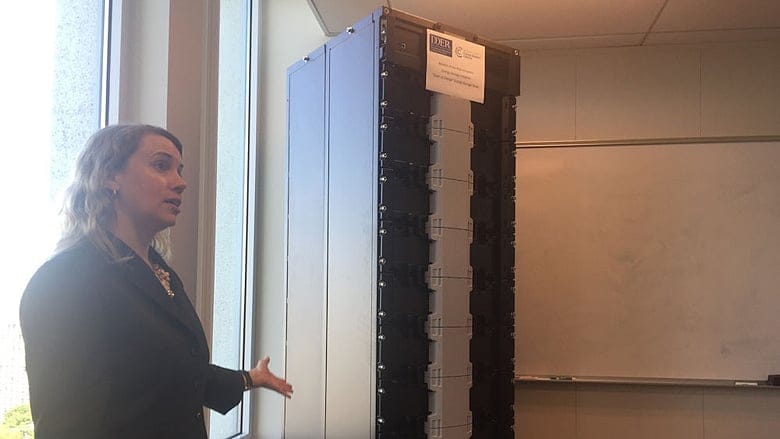Storage could deliver 600 megawatts in 2025, study says

BOSTON — With the right amount of encouragement, energy storage technology – a field that can range from batteries to more novel contraptions – could account for 600 megawatts of energy in Massachusetts by 2025, providing more than $800 million in savings and reducing greenhouse gases by the equivalent of removing 73,000 cars from the road, according to a new study.
"Storage is going to be an integral technology," Energy and Environmental Affairs Secretary Matt Beaton told reporters Friday. He called it a potential "game-changer," a term that others have also used to describe the technology's promise.

